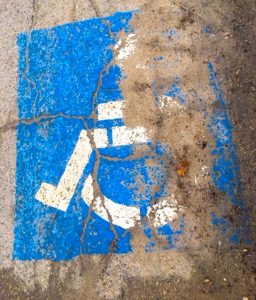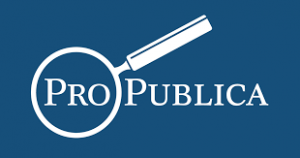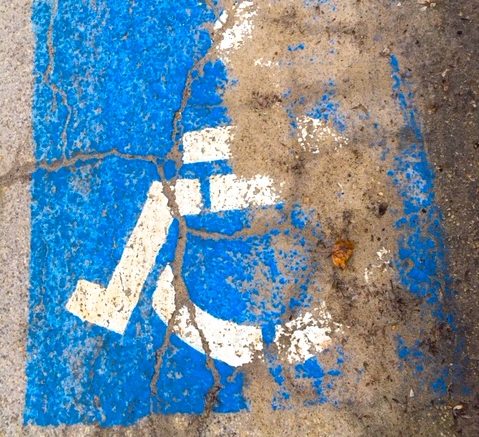
“I don’t feel like my hospital is failing us. It’s the whole system that’s failing us.”
By Hannah Rappleye, Andrew W. Lehren, Laura Strickler & Sarah Fitzpatrick
NBC News (4/20/20)
A hospital nurse in Michigan says she and her colleagues have discussed bringing in bleach to make their own disinfectant wipes. A pregnant nurse in Ohio says she has no choice but to tend to critically ill patients without a specialized N95 mask. And a health care worker in Georgia has resorted to scouring local hardware stores in an effort to secure the protective masks.
These are just some of the stories told to NBC News by more than 250 health care providers on the front lines of the coronavirus pandemic, including many who work in major hospitals.
The accounts were solicited through an NBC News survey, pushed out on social media, about access to personal protective equipment (PPE), a broad term for the gear, such as masks, glasses, gowns and respirators, donned by health care workers to protect against the transmission of germs.
Nearly all who responded said there were shortages of PPE in the hospitals, outpatient clinics and offices where they worked.
“The doctors are talking about making living wills and what will happen when we are faced with this. All of us are wondering which one of us will die.”
Many reported being forced to ration or reuse supplies, including surgical and N95 masks, for fear of running out. Many also said they were facing shortages of basic sanitary supplies, including hand sanitizer and disinfectant wipes.
NBC News was not able to independently verify each account. But where possible, the facilities were contacted and given an opportunity to respond.
The nurse in Michigan, who is based in Flint and works primarily with immunocompromised patients, said that nurses at her hospital have been rationed one N95 mask each and are being required to store them in a bag and reuse them, against manufacturer guidelines. Nurses on her floor, she added, have also been unable to obtain enough disinfectant wipes.
“We ordered five containers the other day and we only got one,” she said. Like many medical professionals who spoke to NBC News, she asked to remain anonymous for fear of losing her job. “One container of bleach wipes for 42 beds.”
“I don’t feel like my hospital is failing us,” she said. “It’s the whole system that’s failing us.”
“We certainly would not ask a firefighter to fight a fire with a spray gun,” said Deborah Burger, president of National Nurses United, the nation’s largest nurses’ union. Burger, who has been a registered nurse for 45 years, said that neither the government nor the private sector are acting fast enough to get critical supplies to those who need them.
“It is a moral obligation of our government and our employer to provide safety equipment to those of us on the front line,” she said.
“We are unable to protect ourselves”
The overwhelming majority of the medical professionals across the country who responded to the NBC News survey expressed concerns about a lack of N95 masks, which offer more protection than surgical masks.
A health care worker at a hospital in Indiana described a Kafkaesque scenario: medical staffers can only get the masks when a patient has tested positive for the virus, but the facility has no way to confirm a case.
“There are many possible exposures in my hospital but are not equipped with the testing devices in order to confirm the cases,” the worker wrote. “We are then not allowed to wear proper PPE because they are not ‘positive’ and because our hospital is short on the PPE. We are also told that we are expected to keep the N-95 masks for several days and several patients and that they can be disinfected with Sanicloth wipes.”
“We do not have N95 masks, so we are being asked to intubate patients (which exposes us to entire airway) with normal masks,” wrote the pregnant nurse from Ohio. “It is unacceptable. We are supposed to treat every patient as suspected positive but we are unable to protect ourselves.”
The N95 mask filters out airborne particulates and aerosols, and the Food and Drug Administration advises that neither N95 masks nor surgical masks should be used more than once.
But in response to growing shortages of PPE, the Centers for Disease Control and Prevention has loosened its guidelines on proper use and reuse of masks. On Thursday, the agency advised that bandanas and scarves could be used by health care workers in place of a mask as a last resort.
“The fact that a recommendation like that came out from the Centers for Disease Control is mind boggling to me,” said Dr. Adam Friedlander, an emergency physician working in Atlanta.
“There was a time when a recommendation came from the CDC, we knew that it was evidence-based guidelines for how we could protect ourselves from becoming sick with a potentially fatal illness. Now we know the recommendations are coming from a place of desperation, acknowledging that these supplies are unavailable.”
A nurse who works at a major hospital in Massachusetts and spoke to NBC News on the condition of anonymity, said that medical staff have been told they must reuse their N95 masks five times before they are able to get a new one.
“It’s scary to have to reuse the mask,” she said. “At the same time it’s like, what are you supposed to do if there’s none to be had?” …
*****
Here’s Why Florida Got All the Emergency Medical Supplies It Requested While Other States Did Not

A chaotic distribution plan is buckling under a big problem: Nobody has enough.
By Lydia DePillis, Mike Spies, Joshua Kaplan, Kyle Edwards & Caroline Chen
ProPublica (3/20/20)
On March 11, Florida requested a cache of emergency supplies from the federal government to protect its medical workers against the novel coronavirus.
Three days later, the state got everything it wanted.
Other states had only tiny slivers of their requests fulfilled, including some that had asked for them earlier than Florida. Oregon and Oklahoma received only about 10%; New Jersey got less than 6%.
This disparity has not been lost on the states that feel shortchanged in their requests from the Strategic National Stockpile, a trove of supplies managed by the U.S. Department of Health and Human Services.
Officials fear that hospitals will be overwhelmed by far more patients than they can safely treat if the current pace of infections continues. This month, officials estimated that if the outbreak lasts a year, the U.S. could need 3.5 billion of the N95 masks that protect health care workers. The national stockpile had only 12 million N95 masks and 30 million surgical masks on hand when the crisis began.
Dwindling reserve
While it may appear like the federal government is playing favorites, federal officials said their decisions were based on their best assessment of relative needs. HHS told states this week that it is giving out 25% of the stockpile to states according to population size, and sending another 25% strategically to states with the most severe outbreaks, which can be used for needs such as testing passengers on cruise ships brought back to shore. The remaining 50% will be held in “strategic reserve,” to be used if there’s a huge spike of critical needs around the country.
The inability of the United States to deploy widespread testing for the coronavirus has further complicated how the supplies are being apportioned because health officials do not have a complete picture of where the virus is circulating most widely. But many states, worried that their case counts are about to soar and their hospitals will be swamped, have been unsatisfied with their allotment.
The system appears to roughly conform to states’ populations, rather than the size of their requests. Florida, a state of 21 million, got all 180,000 N95 masks it wanted. Oregon, a state of 4 million, only received 40,000 of the 400,000 masks it requested, and New Jersey, a state of 9 million, got 85,000 of the 2.9 million masks it feels it needs.
It is hard to assess what constitutes a reasonable request. All states are starting with different stockpiles of supplies. Some have been hit harder than others by the virus, and some anticipate they might be. Each state is trying to secure as much as possible for its health workers, who are raising alarms that they are running out of basic supplies. …

